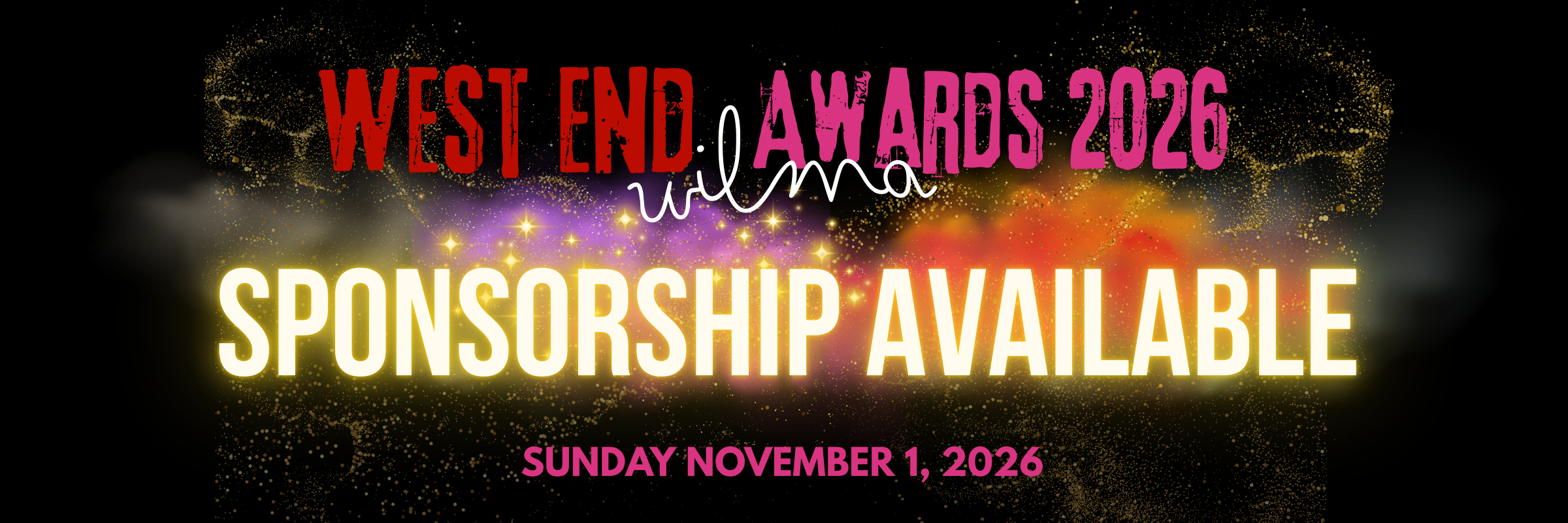 Nick Payne’s unforgettable parallel-universes love story Constellations was first performed in 2012 at the Royal Court with Sally Hawkins and Rafe Spall as the romantic couple whose relationship is explored through the what-ifs of quantum multiverse theory. As high-concept as they come, the play nonetheless forces an audience onto the ropes emotionally, making you consider how things could have turned out differently in your own life. As a two-hander without a set it’s an easy piece to put on, but as a challenge for two actors it’s a tricky piece to pull off.
Nick Payne’s unforgettable parallel-universes love story Constellations was first performed in 2012 at the Royal Court with Sally Hawkins and Rafe Spall as the romantic couple whose relationship is explored through the what-ifs of quantum multiverse theory. As high-concept as they come, the play nonetheless forces an audience onto the ropes emotionally, making you consider how things could have turned out differently in your own life. As a two-hander without a set it’s an easy piece to put on, but as a challenge for two actors it’s a tricky piece to pull off.
3Hive Theatre is a new company formed by some enterprising recent university graduates. Directed by Sophie Drake with Bella Hornby as Marianne and Louis Dunbavin as Roland in a three-day run at the Hen & Chickens, they’re getting out there and doing it for themselves. It’s a strong enough piece of writing to carry the production through, but the main problem is that the piece lives or dies not on the heady physics of the multiverse, but on the personal chemistry presented by the actors.
It’s a paradox of the theatre that its main job is impossible. You can never truly know what it’s like to be in someone else’s relationship—the complex webs of tenderness and frustration, the layers of joy and despair, the catalogue of selflessness and betrayal. Yet we expect our actors to give us a sense of this. Constellations, with its constant resetting of the scene and going back again over the possibilities that might have occurred, forces the performers to switch rapidly between contrasting mindsets as we are buffeted along on the choppy waters of Marianne and Roland’s relationship.
I wasn’t overly convinced by the central chemistry between the two actors. Dunbavin especially seemed awkward in their physical interactions. They may have overstated the variances of each character between each universe, such as in the comical variations when Roland is trying to propose to Marianne with a corny speech about bees; in one universe he is cringey and inept, in another bold and successful. Broadly speaking, it can be hard to remember which Roland or Marianne you’re performing. They might have made it easier on themselves to have regularised the characterisation.
There are lovely things about the production, with strong clear design and, to indicate each shift between universes, the expansion of the Royal Court’s single beep into complex electronic flashbulb moments with physical movement. The potentially confusing story was clearly drawn, and during the late scene conducted entirely in sign language you could have heard a pin drop… though this highlighted some of demanding verbal problems of the play.
The spareness of the playtext puts great demands on the actors to transmit the nuances of the characters. Marianne’s illness is especially difficult to portray. Her thinking deteriorates but the writing doesn’t just resort to gibberish. It delicately gives us spatterings of revealing, even poetic, mental stutters and slurs. The final stretch of the play depends on the actor to bring out Marianne’s distress and confusion in order for the audience to sympathise with her decisions at the climax (sadly this didn’t happen). Even if you don’t agree with these decisions, you have to believe in the tragic ambivalence of the story’s conclusion. Because no matter what decisions you make—or the decisions that the universe makes for you—in real life you only get to make them once.
Reviewed by AJ Dehany
_____________________________________________________________
Click here to subscribe to my email list for all the latest theatre news, special offers and competitions
FOLLOW WEST END WILMA TWITTER | FACEBOOK | INSTAGRAM | YOUTUBE


